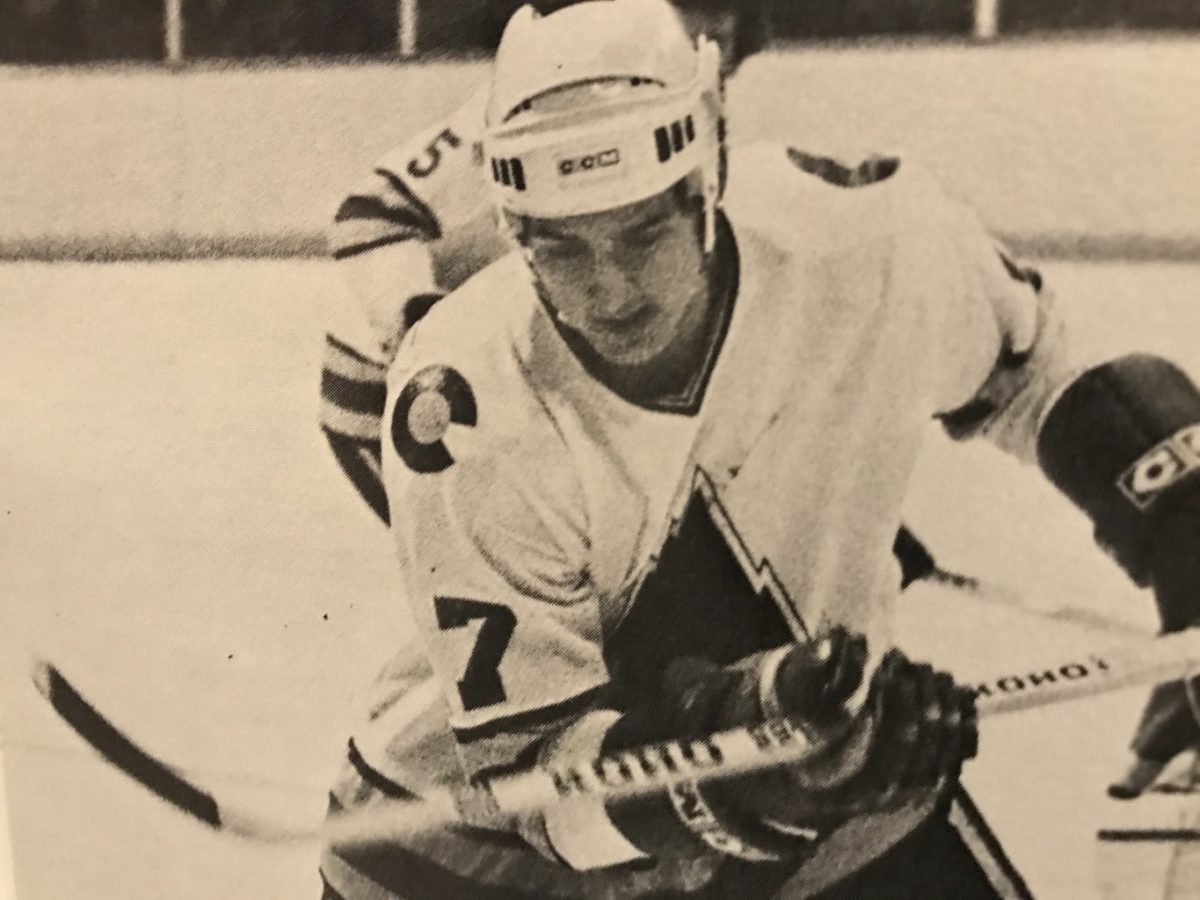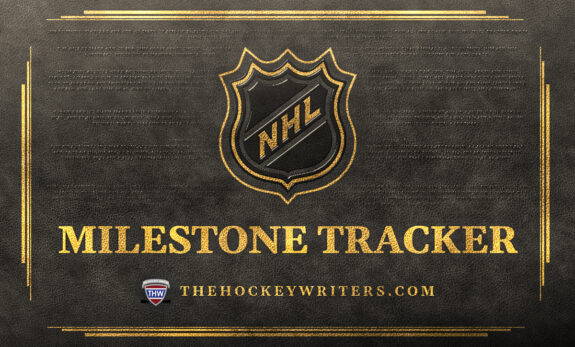The Vancouver Canucks unveiled their special events schedule for the first half of the season and they will once again host a “First Nations Celebration Night”, this time in December rather than March like they did last season. It will occur on Dec. 5 versus the New Jersey Devils, but the Canucks won’t be allowed to wear their usual themed jerseys in warmups since the NHL banned them in the offseason. Last season, they wore some pretty interesting threads before they honoured the late Gino Odjick in a pre-game ceremony.
Many Indigenous players have represented the Canucks over the years. Here are three of the most notable ones.
Ethan Bear
Ethan Bear was born in Regina and was raised in Ochapowace Nation near Whitewood, Saskatchewan. Selected by the Edmonton Oilers in the fifth round of the 2015 Draft, he grew up in a community steeped in hockey. In fact, the first arena was named after his grandfather Fred Bear, and the current complex (which was built after the first one burnt down) is named after his great-uncle Denton George. Both were considered legends and they were the reason hockey stayed a major part of the culture that Ethan grew up in.
Bear spent a lot of time at the rink and credited the support system of the community as one of the reasons why he ultimately made it to the NHL.
“You get a lot of support because whatever you succeed in, everyone is proud, whether it’s hockey or school. It’s isolated, and there aren’t a lot of resources, but the rink is always open, so I played pickup hockey with older kids all the time.”
After a lot of hard work and support from his family and community, he made his way to the Seattle Thunderbirds of the Western Hockey League (WHL) and got drafted by the Oilers in the fifth round. He made his debut during the 2019-20 season and even got to pay homage to his Cree heritage by wearing a jersey with his name written in Cree syllabics in an exhibition game against the Calgary Flames.
Over the years, Bear has become a role model for other young Indigenous players as they try to do the same thing that he has done and succeed in the NHL.
Latest THW Headlines
After spending a few seasons with the Oilers and one season with the Carolina Hurricanes, Bear was acquired by the Canucks in October 2022 for a 2023 fifth-round pick. He played 61 games with the team and seemed to establish himself as a solid piece of the defence. Unfortunately, while playing for Team Canada at the 2023 World Championship, he suffered a shoulder injury that required surgery and a minimum recovery period of six months. That threw a wrench in his contract negotiations with the Canucks and led to him not receiving a qualifying offer. He is currently an unrestricted free agent but has not ruled out a possible return to Vancouver after he recovers from his injury.
Gino Odjick
Gino Odjick is perhaps the most notable Indigenous player to play for the Canucks, having spent eight seasons in Vancouver and scored 88 points (47 goals, 41 assists). He was drafted in the fifth round of the 1990 NHL Entry Draft and had the opportunity to share a line with Hall of Fame inductee Pavel Bure, where Odjick gained a reputation for being a physically strong winger. He won the respect of the Canucks fans, but his difficult upbringing meant that he had to work even harder to pursue his hockey dream.
You may also like:
- Canucks News & Rumors: Demko, Pettersson & Tocchet
- Prime Video to Carry National Monday Night Games in Canada
- Vancouver Canucks’ Best Trades With Vegas Golden Knights
- Takeaways From Predators’ Block Party Game 2 Win Over Canucks
- Predators Shut Down Canucks With 4-1 Win in Game 2
Odjick was born in an Algonquin Native Reserve on the outskirts of Maniwaki, Québec. He was one of six children, and his parents helped the family to raise up to 32 foster children. His father, Joe, played hockey while he was attending a residential school and coached children on the reserve. Gino started playing team hockey when he was 11 years old, and he stayed with local teams from different reserves until he was 15. He initially played as a defenseman and switched to forward after he joined the Hawkesbury Hawks, a minor team from Ontario. He started to become a fighter on the ice, which he credited to racial tensions between neighbouring reserves.
Odjick registered 200 penalty minutes in six of his eight seasons as a Canuck, but his biggest battle was not on the ice. He was diagnosed with primary amyloidosis — a rare blood disorder — and suffered a heart attack due to drugs he had been prescribed. He underwent experimental treatment and was given months to live, but the treatment worked, and he remained in good health until he passed away on Jan. 15, 2023.
Ron Delorme
Ron Delorme has served as a scout for the Canucks since 2000. He has the nickname “Chief” due to his Métis and Cree heritage, and he was one of the first Indigenous players to promote hockey in First Nations communities. His work earned him many honours, including a star blanket, which is given to respected members of Aboriginal communities. (from ‘Ed Willes: Role model Delorme deserving of ‘star blanket’ treatment on, off ice,’ The Province, 07/12/2018)

Delorme was born in North Battleford, Saskatchewan. The Kansas City Stars drafted him in the 1975 NHL Entry Draft, and he signed wth the Colorado Rockies one year later. He played more than 300 games as a forward for the Rockies, moving to Vancouver in 1981. He was regarded as a tough player in his four seasons with the Canucks, scoring 37 points (14 goals, 23 assists) before retiring from playing in 1985.
Delorme has campaigned for the inclusion of Indigenous people in professional sport. He makes frequent visits to reserves to coach teams, to share his life story and to teach others about hockey. He also spoke of his admiration for Fred Sasakamoose, the first Indigenous player to play in the NHL. Sasakamoose died in 2020 due to complications with COVID-19, and Delorme has said that he intends to continue Sasakamoose’s legacy alive through working with Indigenous people.
Canucks’ Indigenous Players Have Fought to Play the Sport
The stories of former Indigenous Canucks’ players are familiar within the hockey world. They all came from similar backgrounds, often low-income families and worrying that financial limitations would prevent them from ever making the NHL. Others suffered racial abuse during their careers, and this provided some motivation to prove the doubters and the abusers wrong. These life lessons gave these players a chance to give back to Indigenous communities and to show Indigenous people that pursuing a hockey career is not impossible.
The Canucks include First Nations Celebration Night as a part of the “Hockey Is For Everyone” initiative. The goal of the event is to celebrate the cultures of different ethnic groups, including First Nations communities across the province of British Columbia. Odjick, Bear, and Delorme have played for the Canucks and have provided one important life lesson: anyone can play hockey, regardless of ethnic background, nationality, or religion.

